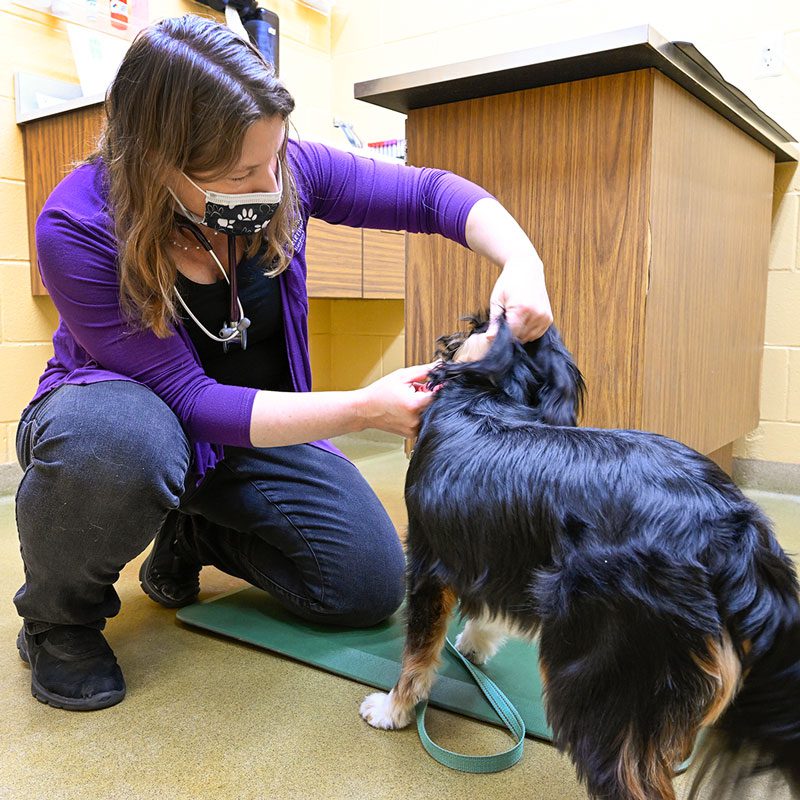Allergy Treatment for Dogs & Cats in Wilton, NY
Pet allergies are a common problem in cats and dogs, and sometimes in exotic pets. Dogs and cats, however, are more prone to allergic reactions whether from contact, inhalant, or food allergens. In and around Wilton, NY, goldenrod is a huge source of allergic reactions in our dogs. At Saratoga Veterinary Hospital, we offer pet dermatology services that control the itch and help to treat any secondary skin infections, too.
Call us today at (518) 587-3832 with any cat and dog allergy questions you might have.

What Are Pets Allergic To?
Pets can be allergic to many of the same things we can! Some of the most common allergens include:
- Flower, tree, and grass pollens
- Dust and dust mites
- Mold
- Fleas, mosquitoes, or other insects
- Certain materials (rubber, plastic, etc.)
- Cleaning products
- Fabrics
- Certain medications
- Food allergies (chicken, pork, beef, dairy, etc.)
- And more
How to Tell if Your Pet Has Allergies
Allergies most commonly manifest as skin conditions. Common signs include:
- Your pet scratching themselves more than usual
- Red, irritated skin
- Dry, flaky skin
- Hair loss
- Hot spots
- Pet is licking/chewing their paws
- Excessive grooming (cats)
Other symptoms may include runny nose and eyes and sneezing. Vomiting and diarrhea may also accompany a food allergy.
Diagnosing an Allergy
With our pet dermatology services, we perform several diagnostic tests in order to fully understand your pet’s skin condition before diagnosing an allergy. We’ll perform skin scraping, blood work, and more to determine if your pet’s skin condition is the result of an underlying condition. If not, pet allergies can be assumed. We can also perform a blood test to further confirm an allergy if you prefer.
Treating Dog & Cat Allergies
To treat allergies in dogs and cats, we offer several options. Since every pet is unique, it may take some time to find the right treatment or combination of treatments to manage the allergies. Common treatments we use include:
- Cytopoint (a 4-16 week injectable for dogs)
- Apoquel (a daily oral tablet for dogs)
- Atopica (a daily oral tablet for dogs and oral solution for cats)
- Allergy testing and desensitization
- Antihistamines
- Antibiotics for secondary bacterial infections
- Antifungals for secondary fungal infections
- Medicated shampoos and topicals
- Food elimination diet (if food allergies are suspected)
- Steroids, for cases that are not alleviated with the above options



